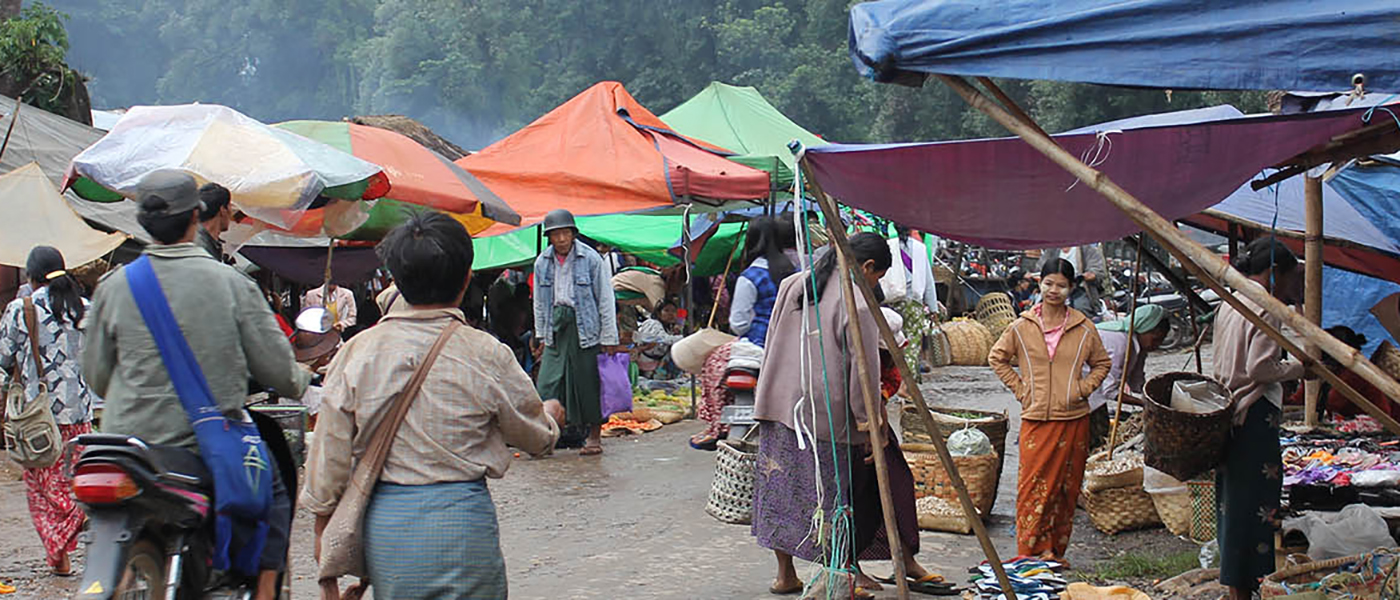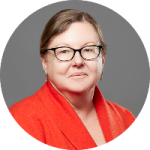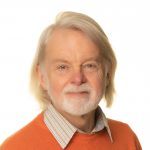Social Geography
Social geography focuses on the relationship between social life and geographical patterns of change at various scales. At McMaster we are interested in both rural and urban settlements, present and past, and continue to do research in North America and the developing world. We are using a variety of theoretical perspectives including feminism, political economy, and postcolonialism, and diverse methodological tools, in order to understand topics that include disability, urban quality of life, health and health care, formal and informal caregiving, gender and legal issues, housing, suburban development, and colonial urbanism. Social geographers with graduate degrees from McMaster obtain jobs in a range of fields including housing, public health, planning, and education. Many have gone on to academic careers in leading departments of Geography in Canada and around the world.
Information Box Group
Vera Chouinard
Professor Emeritus
Hello!
I am a radical and feminist geographer and disability studies scholar with interests in housing issues, the marginalization of diverse people in and beyond the academy, state restructuring, law, and disability in the global South and North. I am also interested in ableism as a regime of power in global capitalism—something inspired by a lengthy struggle for accommodation of my needs as a professor disabled by multiple illnesses. I also reflected the realization as well that many other disabled people were in far more disadvantaged circumstances than their academic counterparts. It was time for us to shed more light on this.
I recently retired but remain active in research and writing, serving on graduate supervisory and examining committees, and reviewing articles for journals. I will consider other options—feel free to ask.
My new book Re-Mapping an Ableist World will be published soon by University of Toronto Press, If you share my interests or are curious to find out more I hope you’ll read it!
Richard Harris
Professor Emeritus
I retired in 2019 but remain active in research and writing.
I am interested in how the built environment has reflected and shaped our lives, with particular reference to dwellings and residential environments. The influence of the built environment often becomes apparent, and also changes, over long periods of time, and I have found it fruitful to undertake historical research as well as studies of the present. (I am an Associate of the Department of History at McMaster.) Dwellings frame much of our daily life and offer a valuable prism through which to study social, cultural, and economic change.
I have used, and am using, housing as a prism in two contexts:
- The history of housing, neighbourhoods and suburbs in North America in the twentieth century. By studying the linkages between production and consumption of these environments it is possible to ground, and extend, recent debates about the cultural construction of the economy, and about class and gender differences in the meaning of consumption. The most recent work coming out of this research is What’s in a Name? Talking about Urban Peripheries (edited with Charlotte Vorms) (Toronto, 2017). A companion volume, The Urban Land Market (coedited with Ute Lehrer) will be published in 2018. My book projects at present are a survey of How Cities Matter, and A History of Canadian Urban Neighbourhoods since the 1880s.
- The current housing scene in Hamilton, Ontario, paying particular attention to the character of the rental stock. Students have interviewed landlords and tenants, and are undertaking an analysis of the growth of condominiums and of patterns of ownership of the rental housing stock. Projected research will examine social and affordable housing. The results of these studies are being interpreted in the context of an analysis of the changing social geography of hamilton since 1970. This research is being undertaken in association with the Neighbourhood Change Research Project, directed by David Hulchanski at the University of Toronto. This project is examining neighbourhood change in seven Canadian cities.
Michael Mercier
Associate Professor
Associate Director, Undergraduate Studies (SEES)
Dr. Mercier is one of four Teaching Professors in the School of Geography & Earth Sciences. He has been recognized for his teaching excellence and his committment to the student experience.
Dr. Mercier’s teaching interests are primarily focused in the broad, interdisciplinary field of human geography, especially at the introductory level. Dr. Mercier is co-author of Human Geography (Oxford University Press), the market-leader in introductory human geography textbooks.
In addition, Dr. Mercier teaches courses across the many sub-areas of the field of human geography, including: urban (incl. urban planning), economic (incl. globalization), social, population and health, and regional geography (incl. world regional geography, geography of Brazil, etc.).
Dr. Mercier also regularly teaches some of the core methodological courses such as research and field methods, and regularly can be found leading field courses in Toronto every August and San Francisco in February. Dr. Mercier is also the coordinator of the School of Geography & Earth Science’s independent study program.
Not currently accepting graduate students.

Michael Mercier
Associate Professor
Associate Director, Undergraduate Studies (SEES)
Allison Williams
Professor
CIHR Research Chair in Gender, Work and Health
Dr. Allison Williams is a Professor in the School of Earth, Environment & Society. She is trained as a health geographer in quantitative, qualitative, and mixed-methods research. She holds a Bachelors of Arts degree from Bishop’s University, a Masters of Arts degree from the University of Toronto, and a Doctor of Philosophy from York University. In 2008. She engages in social justice research to inform policy and program change. Most recently, she is leading a partnership grant to create carer-inclusive workplaces.
Robert Wilton
Professor (on Research Leave)
Dr. Robert Wilton earned a Hons. B.A. at the University of Hull (UK) and a M.A. and Ph.D. from the University of Southern California in Los Angeles. His research is broadly concerned with the social geographies of exclusion. He is interested in (1) the ways that some groups within society are excluded from valued environments, (2) the ways in which this exclusion reproduces the marginal or problem status of such groups, and (3) the capacity of such groups to contest their exclusion. Much of his research has focused specifically on the experiences of people with disabilities. His doctoral work, for example, examined the origins of community opposition to housing for disabled persons. More recently, his work has focused on three topics. He is completing SSHRC-funded research on the exclusion of disabled persons from spaces of paid employment, and the strategies used by individuals to overcome this exclusion. He is working with a coalition of people living with mental illness to document the negative impacts of poverty and poor housing on quality of life and social participation.
Vera Chouinard
Professor Emeritus
Hello!
I am a radical and feminist geographer and disability studies scholar with interests in housing issues, the marginalization of diverse people in and beyond the academy, state restructuring, law, and disability in the global South and North. I am also interested in ableism as a regime of power in global capitalism—something inspired by a lengthy struggle for accommodation of my needs as a professor disabled by multiple illnesses. I also reflected the realization as well that many other disabled people were in far more disadvantaged circumstances than their academic counterparts. It was time for us to shed more light on this.
I recently retired but remain active in research and writing, serving on graduate supervisory and examining committees, and reviewing articles for journals. I will consider other options—feel free to ask.
My new book Re-Mapping an Ableist World will be published soon by University of Toronto Press, If you share my interests or are curious to find out more I hope you’ll read it!
Vera Chouinard
Professor Emeritus
Hello!
I am a radical and feminist geographer and disability studies scholar with interests in housing issues, the marginalization of diverse people in and beyond the academy, state restructuring, law, and disability in the global South and North. I am also interested in ableism as a regime of power in global capitalism—something inspired by a lengthy struggle for accommodation of my needs as a professor disabled by multiple illnesses. I also reflected the realization as well that many other disabled people were in far more disadvantaged circumstances than their academic counterparts. It was time for us to shed more light on this.
I recently retired but remain active in research and writing, serving on graduate supervisory and examining committees, and reviewing articles for journals. I will consider other options—feel free to ask.
My new book Re-Mapping an Ableist World will be published soon by University of Toronto Press, If you share my interests or are curious to find out more I hope you’ll read it!
Richard Harris
Professor Emeritus
I retired in 2019 but remain active in research and writing.
I am interested in how the built environment has reflected and shaped our lives, with particular reference to dwellings and residential environments. The influence of the built environment often becomes apparent, and also changes, over long periods of time, and I have found it fruitful to undertake historical research as well as studies of the present. (I am an Associate of the Department of History at McMaster.) Dwellings frame much of our daily life and offer a valuable prism through which to study social, cultural, and economic change.
I have used, and am using, housing as a prism in two contexts:
- The history of housing, neighbourhoods and suburbs in North America in the twentieth century. By studying the linkages between production and consumption of these environments it is possible to ground, and extend, recent debates about the cultural construction of the economy, and about class and gender differences in the meaning of consumption. The most recent work coming out of this research is What’s in a Name? Talking about Urban Peripheries (edited with Charlotte Vorms) (Toronto, 2017). A companion volume, The Urban Land Market (coedited with Ute Lehrer) will be published in 2018. My book projects at present are a survey of How Cities Matter, and A History of Canadian Urban Neighbourhoods since the 1880s.
- The current housing scene in Hamilton, Ontario, paying particular attention to the character of the rental stock. Students have interviewed landlords and tenants, and are undertaking an analysis of the growth of condominiums and of patterns of ownership of the rental housing stock. Projected research will examine social and affordable housing. The results of these studies are being interpreted in the context of an analysis of the changing social geography of hamilton since 1970. This research is being undertaken in association with the Neighbourhood Change Research Project, directed by David Hulchanski at the University of Toronto. This project is examining neighbourhood change in seven Canadian cities.
Richard Harris
Professor Emeritus
I retired in 2019 but remain active in research and writing.
I am interested in how the built environment has reflected and shaped our lives, with particular reference to dwellings and residential environments. The influence of the built environment often becomes apparent, and also changes, over long periods of time, and I have found it fruitful to undertake historical research as well as studies of the present. (I am an Associate of the Department of History at McMaster.) Dwellings frame much of our daily life and offer a valuable prism through which to study social, cultural, and economic change.
I have used, and am using, housing as a prism in two contexts:
- The history of housing, neighbourhoods and suburbs in North America in the twentieth century. By studying the linkages between production and consumption of these environments it is possible to ground, and extend, recent debates about the cultural construction of the economy, and about class and gender differences in the meaning of consumption. The most recent work coming out of this research is What’s in a Name? Talking about Urban Peripheries (edited with Charlotte Vorms) (Toronto, 2017). A companion volume, The Urban Land Market (coedited with Ute Lehrer) will be published in 2018. My book projects at present are a survey of How Cities Matter, and A History of Canadian Urban Neighbourhoods since the 1880s.
- The current housing scene in Hamilton, Ontario, paying particular attention to the character of the rental stock. Students have interviewed landlords and tenants, and are undertaking an analysis of the growth of condominiums and of patterns of ownership of the rental housing stock. Projected research will examine social and affordable housing. The results of these studies are being interpreted in the context of an analysis of the changing social geography of hamilton since 1970. This research is being undertaken in association with the Neighbourhood Change Research Project, directed by David Hulchanski at the University of Toronto. This project is examining neighbourhood change in seven Canadian cities.
Michael Mercier
Associate Professor
Associate Director, Undergraduate Studies (SEES)
Dr. Mercier is one of four Teaching Professors in the School of Geography & Earth Sciences. He has been recognized for his teaching excellence and his committment to the student experience.
Dr. Mercier’s teaching interests are primarily focused in the broad, interdisciplinary field of human geography, especially at the introductory level. Dr. Mercier is co-author of Human Geography (Oxford University Press), the market-leader in introductory human geography textbooks.
In addition, Dr. Mercier teaches courses across the many sub-areas of the field of human geography, including: urban (incl. urban planning), economic (incl. globalization), social, population and health, and regional geography (incl. world regional geography, geography of Brazil, etc.).
Dr. Mercier also regularly teaches some of the core methodological courses such as research and field methods, and regularly can be found leading field courses in Toronto every August and San Francisco in February. Dr. Mercier is also the coordinator of the School of Geography & Earth Science’s independent study program.
Not currently accepting graduate students.
Michael Mercier
Associate Professor
Associate Director, Undergraduate Studies (SEES)
Dr. Mercier is one of four Teaching Professors in the School of Geography & Earth Sciences. He has been recognized for his teaching excellence and his committment to the student experience.
Dr. Mercier’s teaching interests are primarily focused in the broad, interdisciplinary field of human geography, especially at the introductory level. Dr. Mercier is co-author of Human Geography (Oxford University Press), the market-leader in introductory human geography textbooks.
In addition, Dr. Mercier teaches courses across the many sub-areas of the field of human geography, including: urban (incl. urban planning), economic (incl. globalization), social, population and health, and regional geography (incl. world regional geography, geography of Brazil, etc.).
Dr. Mercier also regularly teaches some of the core methodological courses such as research and field methods, and regularly can be found leading field courses in Toronto every August and San Francisco in February. Dr. Mercier is also the coordinator of the School of Geography & Earth Science’s independent study program.
Not currently accepting graduate students.
Allison Williams
Professor
CIHR Research Chair in Gender, Work and Health
Dr. Allison Williams is a Professor in the School of Earth, Environment & Society. She is trained as a health geographer in quantitative, qualitative, and mixed-methods research. She holds a Bachelors of Arts degree from Bishop’s University, a Masters of Arts degree from the University of Toronto, and a Doctor of Philosophy from York University. In 2008. She engages in social justice research to inform policy and program change. Most recently, she is leading a partnership grant to create carer-inclusive workplaces.
Allison Williams
Professor
CIHR Research Chair in Gender, Work and Health
Dr. Allison Williams is a Professor in the School of Earth, Environment & Society. She is trained as a health geographer in quantitative, qualitative, and mixed-methods research. She holds a Bachelors of Arts degree from Bishop’s University, a Masters of Arts degree from the University of Toronto, and a Doctor of Philosophy from York University. In 2008. She engages in social justice research to inform policy and program change. Most recently, she is leading a partnership grant to create carer-inclusive workplaces.
Robert Wilton
Professor (on Research Leave)
Dr. Robert Wilton earned a Hons. B.A. at the University of Hull (UK) and a M.A. and Ph.D. from the University of Southern California in Los Angeles. His research is broadly concerned with the social geographies of exclusion. He is interested in (1) the ways that some groups within society are excluded from valued environments, (2) the ways in which this exclusion reproduces the marginal or problem status of such groups, and (3) the capacity of such groups to contest their exclusion. Much of his research has focused specifically on the experiences of people with disabilities. His doctoral work, for example, examined the origins of community opposition to housing for disabled persons. More recently, his work has focused on three topics. He is completing SSHRC-funded research on the exclusion of disabled persons from spaces of paid employment, and the strategies used by individuals to overcome this exclusion. He is working with a coalition of people living with mental illness to document the negative impacts of poverty and poor housing on quality of life and social participation.
Robert Wilton
Professor (on Research Leave)
Dr. Robert Wilton earned a Hons. B.A. at the University of Hull (UK) and a M.A. and Ph.D. from the University of Southern California in Los Angeles. His research is broadly concerned with the social geographies of exclusion. He is interested in (1) the ways that some groups within society are excluded from valued environments, (2) the ways in which this exclusion reproduces the marginal or problem status of such groups, and (3) the capacity of such groups to contest their exclusion. Much of his research has focused specifically on the experiences of people with disabilities. His doctoral work, for example, examined the origins of community opposition to housing for disabled persons. More recently, his work has focused on three topics. He is completing SSHRC-funded research on the exclusion of disabled persons from spaces of paid employment, and the strategies used by individuals to overcome this exclusion. He is working with a coalition of people living with mental illness to document the negative impacts of poverty and poor housing on quality of life and social participation.





